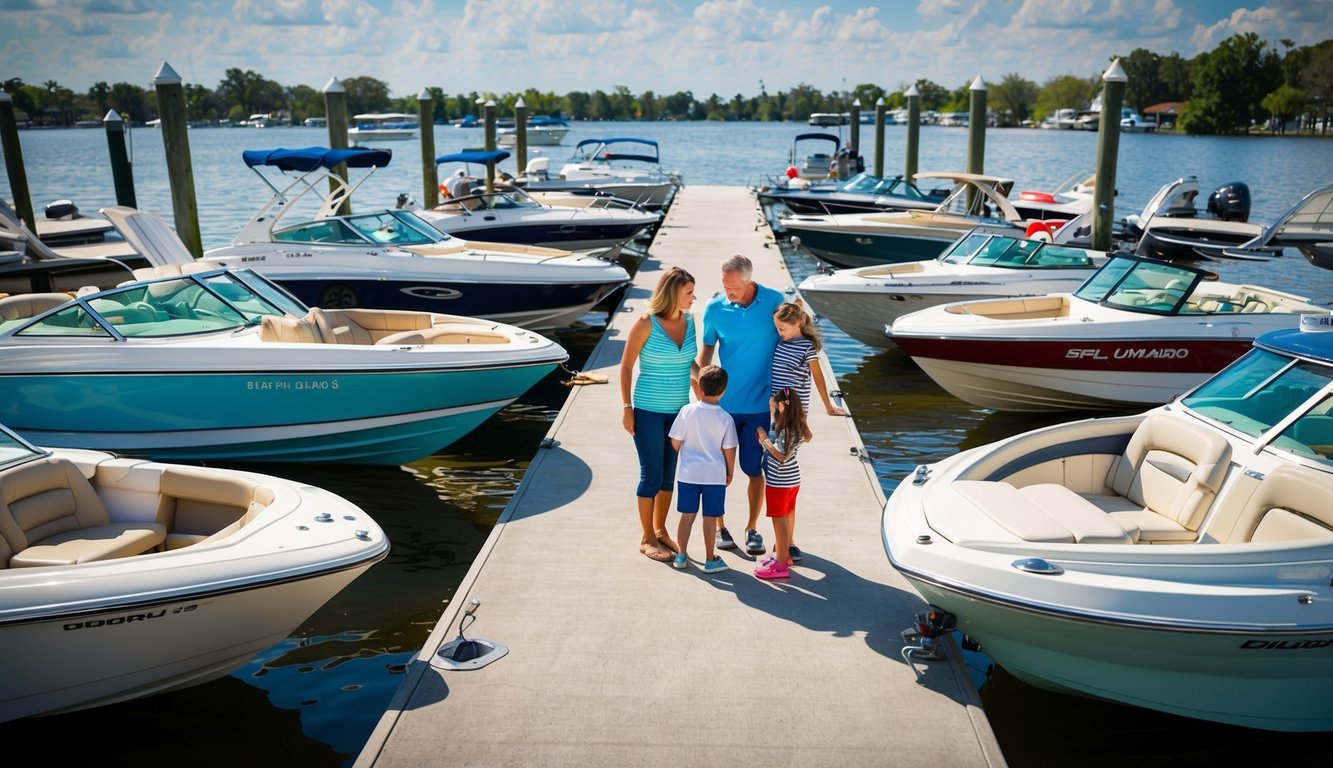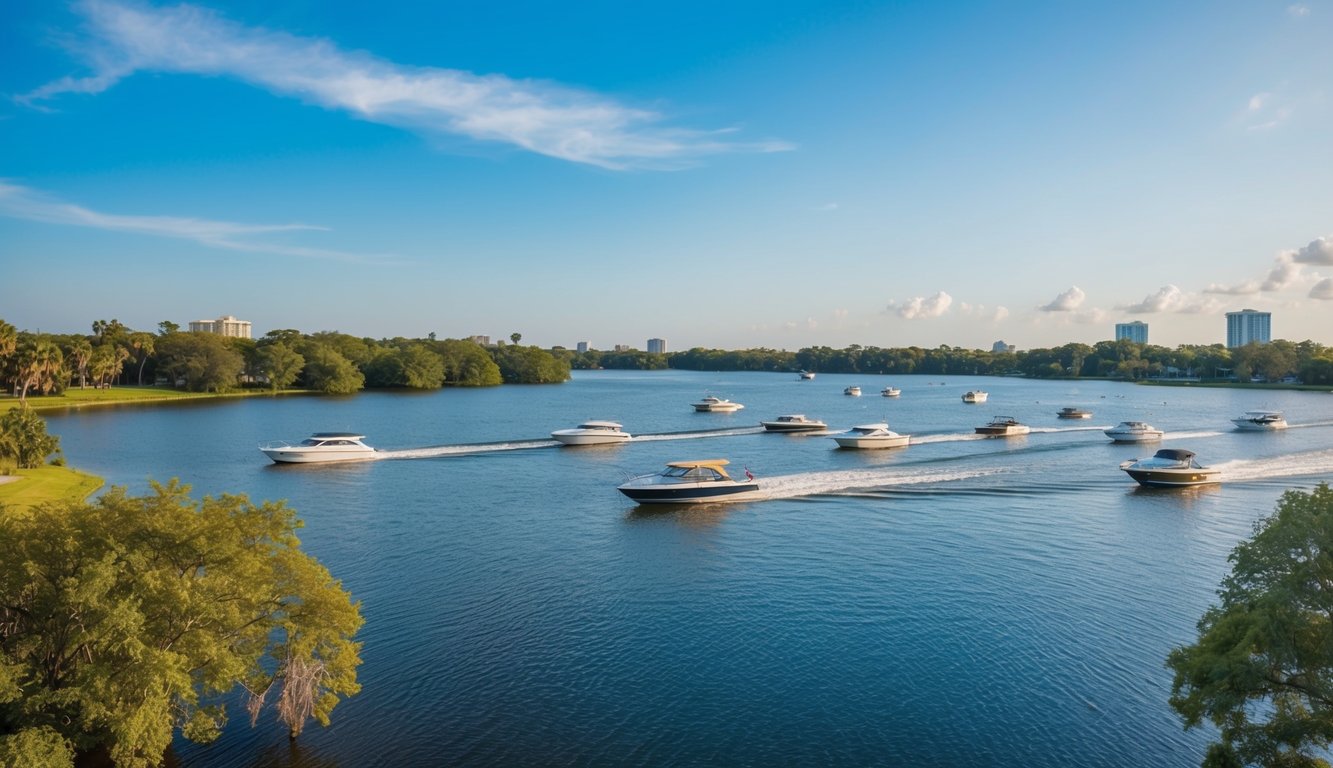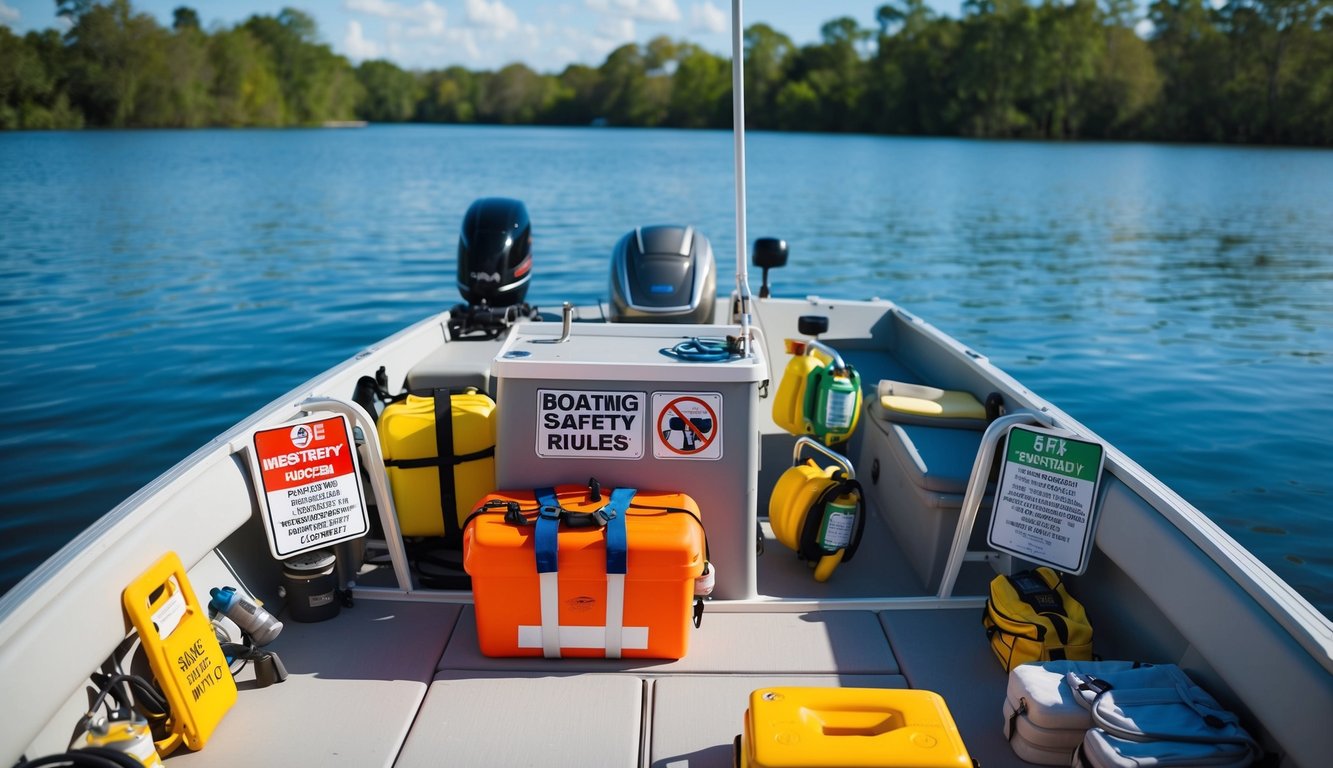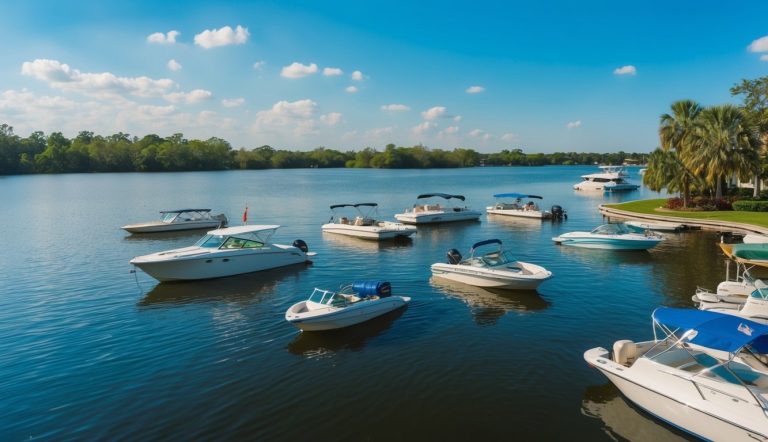Florida has specific boating laws that protect both boaters and the environment. Following these regulations helps ensure everyone stays safe while enjoying Orlando‘s beautiful lakes. Let’s explore the world of using boats in Orlando!
Licensing and Safety Requirements
In Florida, anyone born on or after January 1, 1988 must complete a boater education course and carry a Florida Boating Safety Education ID card when operating a vessel with 10 horsepower or more. You can complete this course online or in person.
All boats must carry safety equipment including:
- Life jackets for each person on board
- Fire extinguisher
- Visual distress signals
- Sound-producing device (whistle or horn)
- Navigation lights (when operating at night)
Remember that personal watercraft cannot be operated from 30 minutes after sunset until 30 minutes before sunrise, even with navigation lights. This rule is strictly enforced on Orlando lakes. Children under 6 must wear a USCG-approved life jacket at all times when the boat is moving. Drinking and boating is illegal – the legal blood alcohol limit is the same as driving (0.08%).
Navigating Local Waterways
Before heading out on Orlando’s lakes, always check weather conditions, wind forecasts, and water levels. Water levels can fluctuate seasonally and affect navigation in shallow areas. Orlando follows standard navigation rules. When meeting another boat head-on, pass port-to-port (like cars passing on the right). The boat on the right has the right-of-way at intersections.
Speed limits vary by lake and are strictly enforced:
| Zone | Speed Limit |
|---|---|
| Idle Speed/No Wake | Slowest speed to maintain steering |
| Slow Speed/Minimum Wake | Speed that creates minimal wake |
| Open Waters | Usually 30-35 mph unless posted otherwise |
Many Orlando lakes have no-wake zones near shorelines, docks, and swimming areas. Pay close attention to posted signs and markers. Always keep a safe distance from other boats, swimmers, and wildlife. Report any hazards or low water levels to local authorities to help maintain safe conditions for all boaters.
Selecting the Right Vessel for Lake Boating

Picking the perfect boat for Orlando’s lakes depends on your specific needs, budget, and how you plan to use it. The right vessel can make all the difference between an enjoyable day on the water and a frustrating experience.
Types of Boats Suitable for Orlando’s Lakes
- Bowriders are extremely popular on Orlando lakes because of their versatility. These boats offer open seating in the front and are great for Central Florida lakes and rivers due to their ease of operation and maintenance.
- Pontoon boats provide a stable, spacious platform perfect for family outings and entertaining. Their flat design works well on calm lake waters, offering plenty of room for relaxing, fishing, or swimming.
- Fishing boats are ideal if angling is your primary goal. Many Orlando lakes are known for excellent bass fishing opportunities.
- Deck boats combine the stability of pontoons with the performance of fiberglass vessels, giving you the best of both worlds.
Renting vs. Owning a Boat
- Boat rentals offer a flexible, cost-effective way to enjoy Orlando’s lakes without the commitment of ownership. Orlando has many scenic lakes with rental options ranging from pontoons to fishing boats and even luxury yachts.
- Boat clubs like Freedom Boat Club provide another alternative. Members can access various boats without ownership responsibilities. Some Florida locations have well-trained dock staff and multiple access points.
- Ownership gives you unlimited access and the ability to customize your vessel. However, you’ll need to consider purchase costs, storage, maintenance, insurance, and depreciation.
- If you only boat occasionally, renting or joining a club likely makes more financial sense. For frequent boaters who know exactly what they want, ownership enhances your lake living experience.
Top Boating Destinations in Orlando

Orlando offers incredible boating opportunities with pristine lakes and waterways. The natural beauty of Central Florida shines through its clear waters and abundant wildlife, making it a boater’s paradise.
Discovering Lake Monroe
- Lake Monroe spans 9,406 acres in Seminole County, making it one of the largest lakes in Central Florida. You’ll find excellent public boat ramps at Wayside Park and Lake Monroe Park that provide easy water access.
- The lake connects to the St. Johns River, offering you endless exploration possibilities. Boaters enjoy the wide-open water perfect for waterskiing, wakeboarding, and tubing activities.
- Wildlife viewing is spectacular here. You can spot alligators, manatees, and various bird species along the shoreline. The lake’s average depth of 8 feet makes it navigable for most recreational boats.
- Fishing enthusiasts will appreciate the abundant bass, catfish, and crappie. Morning trips yield the best catches when waters are calm and fish are active.
Exploring Ocala National Forest by Water
- Ocala National Forest features stunning spring-fed lakes and rivers that create unique boating experiences just a short drive from Orlando. The crystal-clear waters of Alexander Springs and Juniper Springs offer unforgettable kayaking adventures.
- Lake George, bordering the forest’s eastern edge, provides expansive boating opportunities. As the second-largest lake in Florida, its brackish waters host both freshwater and saltwater species.
- You can rent vessels at several marinas within the forest. Many visitors prefer pontoon boats for leisurely exploration of the forest’s waterways.
- Wildlife viewing is extraordinary here. Bald eagles soar overhead while otters play along the shorelines. The forest’s springs maintain a constant 72°F temperature year-round, perfect for swimming breaks during your boating trip.
- Several boat tours in Orlando can guide you through these natural wonders if you prefer an expert’s knowledge.
Boating Safety and Emergency Preparedness

Safety should be your top priority when enjoying Orlando’s beautiful lakes. Being prepared with the right equipment and knowledge can make the difference between a fun day and a dangerous situation.
Essential Safety Gear
Always carry life jackets for everyone on board—it’s not just smart, it’s the law. Make sure they’re Coast Guard-approved and properly fitted.
Your boat should have these safety items:
- Fire extinguisher
- Visual distress signals (flares)
- Sound-producing device (whistle or horn)
- Navigation lights
- Anchor with line
- First aid kit
- Throwable flotation device
Keep a working VHF radio or fully charged cell phone in a waterproof case. A GPS device can help you navigate and provide your location in emergencies. Don’t forget sun protection! Bring sunscreen, hats, and plenty of water to prevent heat-related issues while boating on Orlando’s sunny lakes.
Responding to Emergencies on the Water
- If your vessel is taking on water, immediately put on life jackets and stay with the boat if possible. A capsized boat usually floats, providing something to hold onto until help arrives.
- For engine failures, drop anchor to prevent drifting into dangerous areas. Use visual or sound signals to alert nearby boaters.
- In medical emergencies, contact the Florida Fish and Wildlife Conservation Commission (FWC) at 888-404-3922 or call 911. Be ready to provide your location using landmarks or GPS coordinates.
- Watch for carbon monoxide dangers when engines are running. This odorless gas can cause unconsciousness quickly, so keep passengers away from exhaust areas.
- Always check weather forecasts before heading out. If you see dark clouds, lightning, or feel wind increasing, head to shore immediately.



